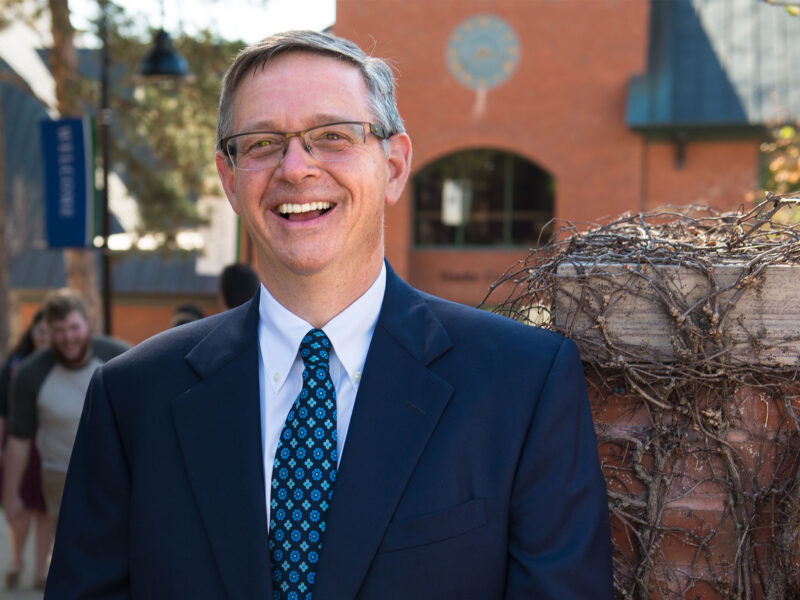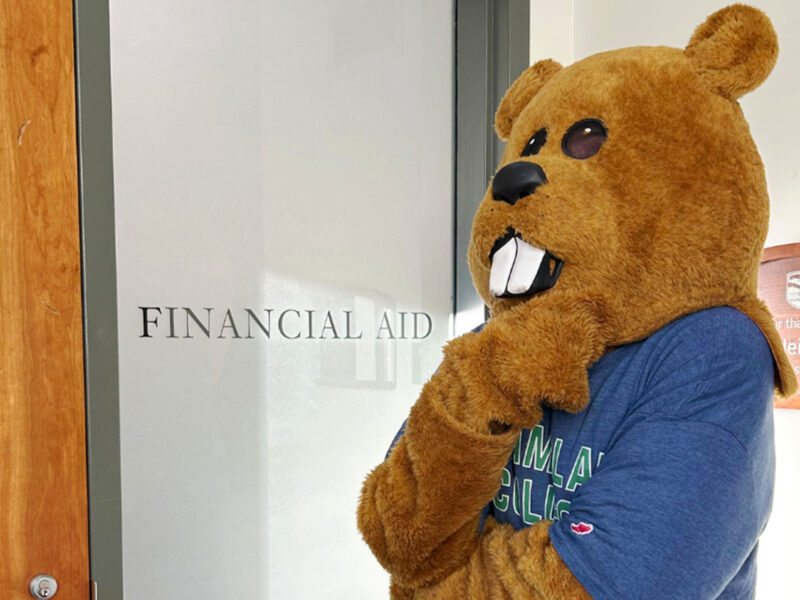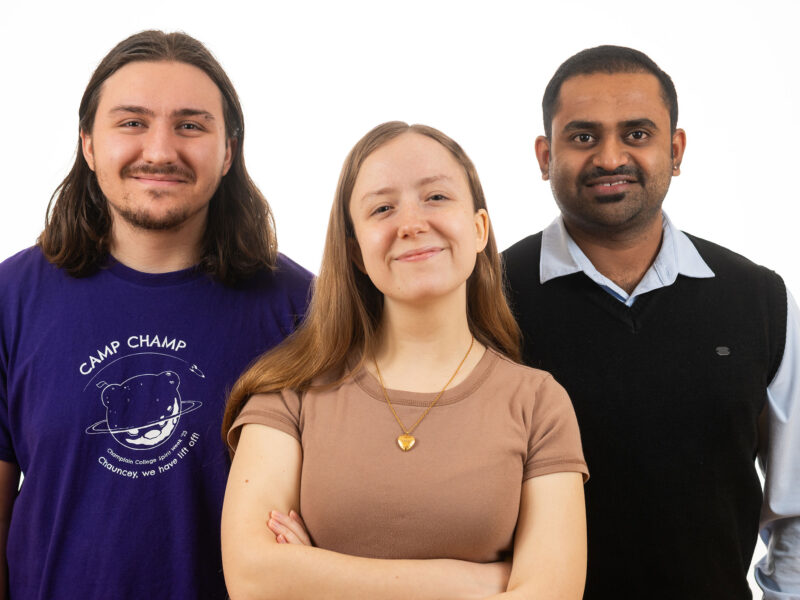Champlain Collaborates With MGH and Harvard Medical School to Enhance Well-being on Campus

Amid mounting evidence about the toll the coronavirus pandemic is taking on the mental health and well-being of college students, Champlain announced a comprehensive collaboration with the Massachusetts General Hospital Child Resiliency Program (MGH CRP) and Harvard Medical School to enhance both mental and physical well-being on its campus.
MGH CRP will provide resiliency workshops for Champlain students, teach faculty and staff how to deliver resilience training, provide support for the College’s existing well-being programs, and work with Champlain on a curriculum to promote personal and academic resiliency.
For MGH CRP, this marks the first collaboration of its kind with a college, allowing for the expansion of its curriculum to college-aged individuals through a systematic approach that includes direct care, training and education, and coursework alternatives. For Champlain, the collaboration with MGH CRP adds a critical element to its already robust programs for well-being, resilience, and mindfulness.
Dr. Aude Henin, Co-Director of the Child Cognitive Behavioral Therapy Program at Massachusetts General Hospital and Assistant Professor of Psychology at Harvard Medical School, said: “We are delighted to partner with Champlain College to offer our resiliency program to their students and staff during this challenging time. Young adults have been especially hard hit emotionally by the pandemic and are experiencing high levels of anxiety, depression, and stress. Our goal is to intervene early, using evidence-based strategies drawn from Mind-Body Medicine and Cognitive-Behavioral Therapy, to ease their suffering in the short-term and improve skills and behavioral health outcomes in the longer-term.”
Young adults have been especially hard hit emotionally by the pandemic and are experiencing high levels of anxiety, depression, and stress.
The pandemic has exacerbated mental health issues that were already prevalent among college-age students. About one-third of students who sought care from their college counseling center during the second half of 2020 said their visit was related to the mental health effects of the coronavirus pandemic, according to new data released by the Center for Collegiate Mental Health, a research group made up of college counseling centers. A June 2020 CDC report on Mental Health, Substance Use, and Suicidal Ideation During the COVID-19 Pandemic found significant mental health issues among 18 to 24 year olds: 62.9% experienced anxiety or a depressive disorder; 46% had COVID-19 TRSD (trauma and stressor-related disorder); and 25% reported seriously contemplating suicide.
“Given that 40% of older adolescents and college-age students have a diagnosable psychological issue, and that COVID restrictions have created or exacerbated behavioral health issues in college students, reaching out preemptively to mitigate potential short- and long-term harm is necessary,” says collaboration director Dr. Timothy Wilens, chief of the Division of Child and Adolescent Psychiatry at MGH and professor of psychiatry at Harvard Medical School. “As we emerge from COVID, we have even further concerns about the need for resiliency, reconnecting with the environment, and helping to quell disorders such as depression and anxiety that invariably onsetted during these times.”

Drawing from well-established, evidence-based interventions to manage stress and build resilience in adults, the Benson-Henry Institute for Mind Body Medicine and the MGH Child Resiliency Program includes workshops for 60 Champlain College students and 20 faculty and staff members in its first phase. By engaging in weekly sessions over six weeks, cohorts of student leaders and educators will discuss physical and cognitive responses to stress, develop and practice self-care and resiliency skills, build social connection, and improve well-being.
Participants learn to recognize stress symptoms, build resiliency, and develop self-care skills to buffer stress, particularly during the COVID-19 pandemic.
Going forward, Champlain will work with MGH to co-create curriculum that will embed well-being initiatives within the undergraduate degree program, to help students understand the neuroscience and physiology underlying responses to stress and how the brain adapts.
“We feel honored as a small private college in Burlington, Vermont, that MGH has chosen Champlain to collaborate and expand the scope of its work,” says Dr. Leslie Averill, Champlain’s Vice President for Academic Affairs and Chief Operating Officer. “Ensuring the well-being of our students, staff and faculty is a cornerstone of our strategy to create a flourishing community and deliver on an outstanding educational experience for our students. The collaboration supports our ultimate goal to create a community where young minds are being developed into healthy and successful graduates with the ability to thrive in a dynamic and ever-changing world.”
For many years, Champlain has prioritized well-being as a key component of its strategic plan for 2030, embedding well-being knowledge, strategies, and practices throughout its academics and culture. In 2018, through a $1 million gift, Champlain co-hosted a Positive Education Summit and adopted a strength-based approach to student learning and success. This has served as the foundation for the integration of well-being into its campus, from academic tutoring to counseling and healthcare to ongoing well-being programming.

The College has appointed a Well-Being and Success Coach and a Visiting Fellow for Well-Being and Resiliency, and has signed on as a JED Campus, a program of the Jed Foundation, to develop comprehensive mental health, substance abuse, and suicide prevention systems, programs, and policies. Champlain’s new academic schedule eliminates daytime classes on Wednesday to give students a day during the school week to recharge and focus on well-being, innovation, connections, and catching up.
Another new initiative that is in keeping with Champlain’s career-driven approach to education and reputation for innovation, Psychology faculty and students are working with the College’s Emergent Media Center to collaborate with OVR Technology on a prototype aimed at supporting college students’ well-being through an olfactory virtual reality experience.
“Nothing is more important than physical and mental well-being,” says Champlain President Benjamin Ola. Akande. “Going forward, colleges must make sure that the health and well-being of students receives the same attention as academic success. We believe our approach allows us to deliver next-level care for our students, redefining what small colleges can and should be doing for students, during the pandemic and beyond.”
Author
Related News



Mentored by their professor, two Champlain College students gain international recognition for groundbreaking research that helps secure privacy in big data.
More Inside The View
Ideas
From the minds of our students, faculty, and alumni.
News
The latest from Champlain College.
People
Champlain is more than just a place; it's a community.
Places
On campus, in Burlington, and beyond.
Events
Check out our many campus events and get involved! Refine your search by using the filters or monthly view options.

